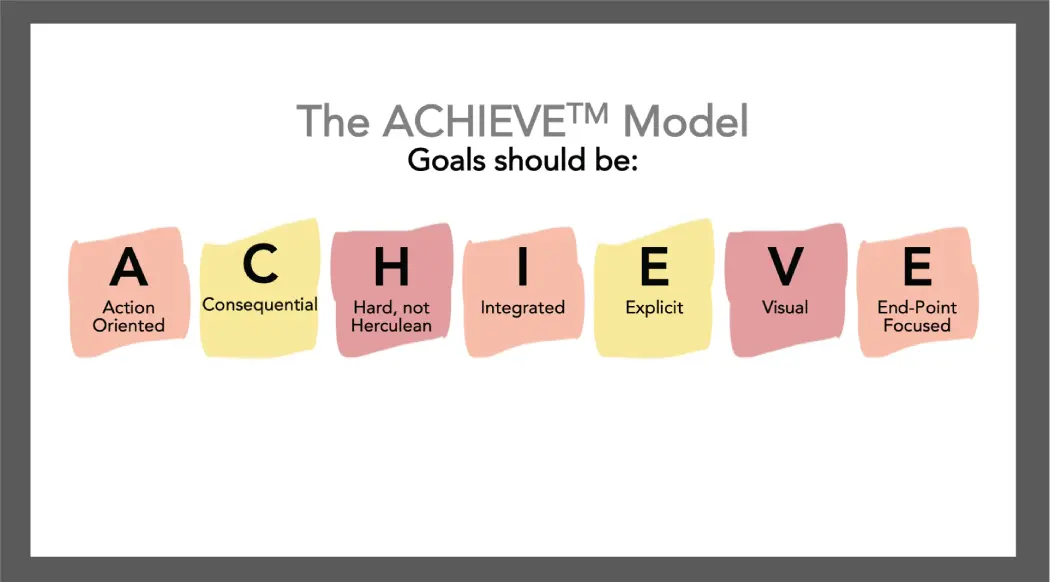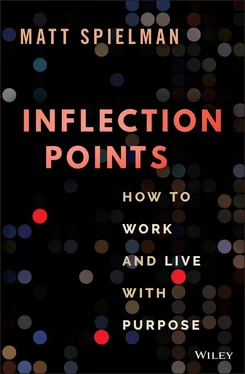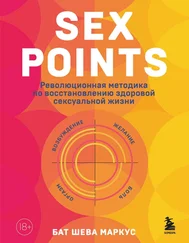Matt Spielman - Inflection Points
Здесь есть возможность читать онлайн «Matt Spielman - Inflection Points» — ознакомительный отрывок электронной книги совершенно бесплатно, а после прочтения отрывка купить полную версию. В некоторых случаях можно слушать аудио, скачать через торрент в формате fb2 и присутствует краткое содержание. Жанр: unrecognised, на английском языке. Описание произведения, (предисловие) а так же отзывы посетителей доступны на портале библиотеки ЛибКат.
- Название:Inflection Points
- Автор:
- Жанр:
- Год:неизвестен
- ISBN:нет данных
- Рейтинг книги:3 / 5. Голосов: 1
-
Избранное:Добавить в избранное
- Отзывы:
-
Ваша оценка:
- 60
- 1
- 2
- 3
- 4
- 5
Inflection Points: краткое содержание, описание и аннотация
Предлагаем к чтению аннотацию, описание, краткое содержание или предисловие (зависит от того, что написал сам автор книги «Inflection Points»). Если вы не нашли необходимую информацию о книге — напишите в комментариях, мы постараемся отыскать её.
Inflection Points: How to Work and Live with Purpose
Inflection Points
Inflection Points — читать онлайн ознакомительный отрывок
Ниже представлен текст книги, разбитый по страницам. Система сохранения места последней прочитанной страницы, позволяет с удобством читать онлайн бесплатно книгу «Inflection Points», без необходимости каждый раз заново искать на чём Вы остановились. Поставьте закладку, и сможете в любой момент перейти на страницу, на которой закончили чтение.
Интервал:
Закладка:
That audacious statement kicked into gear an all-hands-on-deck process involving thousands of professionals in the space program (and many more stakeholders not directly involved but whose assistance was essential). It invigorated NASA, and America as a whole, with a clear and compelling sense of purpose and direction. And seven years later, the American flag was planted on the craggy gray expanse of the lunar surface.
The Moon mission was a tremendous mission of unthinkable scale, but it's analogous to how I go about creating goals with my clients. It starts by informing what goes on the Game Plan. Then we co-create the Game Plan, and the balance of the engagement is working the Game Plan, going on the journey together, and executing against it, as you'll discover throughout this book. After all, a goal is the outcome of how you organize your time, energies, and resources.
TRADITIONAL GOAL-SETTING VERSUS GPS: WHY SMART NEEDS TO BE SMARTER
One of the great lies (and there are many) of the self-development/personal development/coaching world is that all you need to effect a transformation in your life is to set the right goals and follow a process for achieving them (made possible by discipline). Not only does this miss the mark, but it can be dangerous, too. It causes a lot of angst and wasted time for the countless people who go down this road. The purpose of setting ambitions is to grow and learn as you meet them, not to be held in a feedback loop of want without follow-through.
Many people are familiar with SMART as a goal-setting program, a concept born from a paper written by businessman George T. Doran in 1981. He wrote “There's a S.M.A.R.T. Way to Write Management's Goals and Objectives” as a curriculum for managers, so the model has a corporate perspective by nature. Doran emphasized the creation of goals that are Specific, Measurable, Achievable, Realistic, and Timely (there is some variation in the words in the acronym, but that's the gist). This method is not in and of itself wrong, per se. The problem is that SMART, and other conventional goal-setting systems, fall short of what is required. They are shallow. For one thing, it was meant specifically for business application, and it is intellectual, as opposed to comprehensive. Second, the system is limiting. It's not enough to have good intentions—one must know and feel the why, the underlying drivers of the goal.
What are the motivations and innermost intentions that produce your goals?
My own goal-setting system is ACHIEVE: each goal must satisfy seven criteria (see Figure 2.2). One of those is that it must be consequential— to embody something of great significance to me. That is what powers my progress toward the goal's realization. Knowing why something is important to you will drive you toward it versus just thinking that you'd like to have it.
If you've been beating yourself up for most of your adult life because you fail to follow through on the goals you set, or (just as common) you spend years chasing a goal only to discover that it wasn't really what you wanted at all—you're not alone. For years I struggled in my own way with the ineffectiveness of the SMART system and other similar models. Many individuals work hard with the SMART model, but fall short. I, too, thought the formula was good enough, but I always sensed there was something vacuous about goal-setting on the whole. It wasn't until I began coaching that I realized the problem isn't with us—it's with the system.

Figure 2.2 The ACHIEVE Model™.
Finally understanding that goal-setting doesn't work for most people was shocking but also tremendously liberating for me. I see the same shock and awe with many people I've helped see the light. If you've been slogging through your life chasing after something that no longer excites you (if it ever did), this is your way out of that trap (it's a trap you set for yourself, over and over again). It can even be argued that if you've wondered why checking all the boxes next to S-M-A-R-T has left you unfulfilled, then rest assured that the problem is not you. Working with your goals should be energizing. Challenging, yes. Not draining.
It's important to recognize that traditional goal-setting doesn't emphasize visualization, which constitutes a sizeable part of the GPS process. What will it look like when you achieve X? Is there flexibility in what it looks like? For example, if someone wants to run a marathon, do they visualize success as crossing a finish line? As just participating? As being one of the first to finish the race?
Once upon a time, I was fortunate to play on Columbia University's baseball team; I was good enough to have a shot at continuing to play after college before I decided to pursue other avenues. As an athlete, I learned the value of positive visualization—vividly imagining a successful action to make it more real, and priming my mind and body for achieving it.
It works, and the technique—which is used widely by athletes in all sports—is applicable in virtually any endeavor. Perhaps you've tried it, too. But I'm willing to bet you haven't really applied it to the big-picture process of figuring out what you really want, and reorganizing your life around that. Projecting an image in your mind of a desire is powerful; it nearly has a gravitational pull, dragging you from the realm of imagination into physical action, where your dreams actually do take shape.
THE “HEAD” COACH
The sad truth about traditional goal-setting approaches is that they just don't work. Most people don't get results. And even if they do, the results aren't meaningful because they didn't really think about why they wanted them in the first place. In truth, the system of traditional goal-setting can set us up to fail easily.
No one wants to admit this fact because there is such a strong social commitment in the current “self-improvement” system. We are told that goals are good, and that we should make them—even if we do not know why, or how. People have sunk a ton of time and intellectual/emotional labor into the goal-chasing process. There is now quite an industrial complex surrounding goals and discipline, and many individuals profit from the frustration of this process. Think of all the teachers, therapists, authors, guidance counselors, coaches, and speakers who want to talk to you about your goals.
The Game Plan System, in contrast, adds layers of intentionality, emotion, accountability, and principle to our planning practice. This allows us to make decisions and take actions with conviction, because we know that they are working in service of something of great importance to us. If we don't know what we're working on and what we're working toward, it's really hard to figure out what to do on a day-to-day, week-to-week, and month-to-month basis. I get fired up about this because goal-setting and other fallacies of conventional coaching just trap people further in the cycle of quiet desperation, and they end up walking in circles blindly, waiting passively for something to change. The GPS is the way out—and it starts today.
You can think of me as your coach, or guide. I am here to support and prompt the process of self-discovery and self-empowerment as you make it. Not in the way a therapist might (and we'll get into the distinction between therapy and coaching later), but in the sense that all external problems have an internal origin and an internal solution. The starting point for great transformation, whether professional, spiritual, emotional, or physical, lies within your very own mind.
Читать дальшеИнтервал:
Закладка:
Похожие книги на «Inflection Points»
Представляем Вашему вниманию похожие книги на «Inflection Points» списком для выбора. Мы отобрали схожую по названию и смыслу литературу в надежде предоставить читателям больше вариантов отыскать новые, интересные, ещё непрочитанные произведения.
Обсуждение, отзывы о книге «Inflection Points» и просто собственные мнения читателей. Оставьте ваши комментарии, напишите, что Вы думаете о произведении, его смысле или главных героях. Укажите что конкретно понравилось, а что нет, и почему Вы так считаете.











